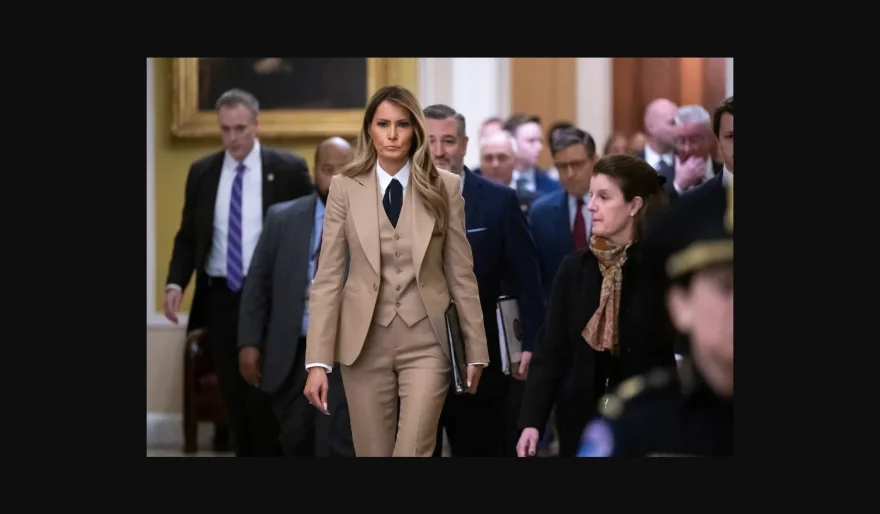Stay Ahead of the Curve
Latest AI news, expert analysis, bold opinions, and key trends — delivered to your inbox.
U.S. Enacts Landmark Federal Law Criminalizing Revenge Porn and Explicit Deepfakes
7 min read Trump signs the Take It Down Act, the first U.S. law criminalizing nonconsensual real and AI-generated sexual content. Platforms must remove flagged content fast or face penalties. May 20, 2025 12:50
In a defining moment for digital rights and AI regulation, President Donald Trump has signed into law the Take It Down Act, a sweeping bipartisan bill aimed at criminalizing the distribution of nonconsensual sexually explicit content—both real and AI-generated.
The legislation marks the first-ever federal crackdown on the dissemination of revenge porn and deepfake pornography, two phenomena that have surged in the age of generative AI and decentralized online platforms. With this move, Washington is no longer leaving enforcement solely in the hands of states or tech companies.
“We will not tolerate online sexual exploitation,” Trump declared during the bill’s signing at the White House. “This law protects victims and sets a clear federal standard.”
What the Law Covers
The Take It Down Act criminalizes the publication, sharing, or hosting of sexually explicit images or videos shared without consent—regardless of whether the content is authentic or AI-generated. Offenders can now face:
-
Federal criminal charges
-
Fines and imprisonment
-
Mandatory restitution to victims
Importantly, this is not just about accountability for individuals: online platforms are now directly in the crosshairs.
Under the law, social media companies, cloud hosts, and digital content platforms are required to:
-
Remove flagged nonconsensual explicit content within 48 hours of a victim’s notice
-
Take “reasonable steps” to prevent reuploads or duplicates of the same content
Failure to comply could open platforms to civil liability or penalties from federal regulators.
Why This Matters Now
The backdrop to this law is a perfect storm of technological advancement and legal stagnation. Over the past year, generative AI has made it trivially easy to fabricate convincing fake nudes or sex scenes using nothing but a few photos and off-the-shelf software. Victims—especially women and minors—often find themselves with little recourse as content spreads across Reddit, Telegram, or shady websites hosted overseas.
A case cited by Sen. Ted Cruz (R-Texas), one of the bill’s sponsors, involved Snapchat allegedly refusing for nearly a year to remove a deepfake of a 14-year-old girl. That chilling inaction helped galvanize bipartisan support for sweeping federal intervention.
Sen. Amy Klobuchar (D-Minn.), who co-sponsored the bill, emphasized that this was about “drawing a line in the sand” against tech platforms that have long evaded responsibility.
Pushback and Censorship Concerns
Despite strong support in Congress, the bill has raised alarms among digital rights advocates and civil liberties organizations. Critics argue the law’s broad language could be weaponized to suppress legal content, stifle artistic expression, or punish political dissent under the guise of protecting victims.
The Electronic Frontier Foundation (EFF) warned the bill could force platforms to over-censor legitimate images, including legal porn or sexual health content. There's also concern that without strong transparency requirements, the takedown mechanism could be exploited for politically motivated censorship.
The Larger Implication: AI Regulation Enters the Real World
This law doesn’t just tackle deepfake porn—it signals a turning point in how the U.S. government is approaching AI-generated content. While most discussions about AI ethics and governance have remained theoretical or tied up in voluntary frameworks, this act shows Congress is ready to legislate—with teeth.
It also reflects a broader recognition: AI is not just a tool—it’s a weapon in the wrong hands. And when that weapon is used for sexual exploitation, the law must evolve to protect the vulnerable.
Expect more federal actions in this direction soon—possibly on issues like synthetic audio, fake news videos, and manipulated biometric data.
The Bottom Line
The Take It Down Act is the first federal legal firewall against AI-enabled sexual exploitation. It’s a bold step—but one that raises new challenges around censorship, platform liability, and AI ethics.
Whether this law becomes a blueprint for global regulation or a cautionary tale of overreach will depend on how it's enforced—and how tech companies and civil society respond in the months ahead.



















 AI Agents
AI Agents